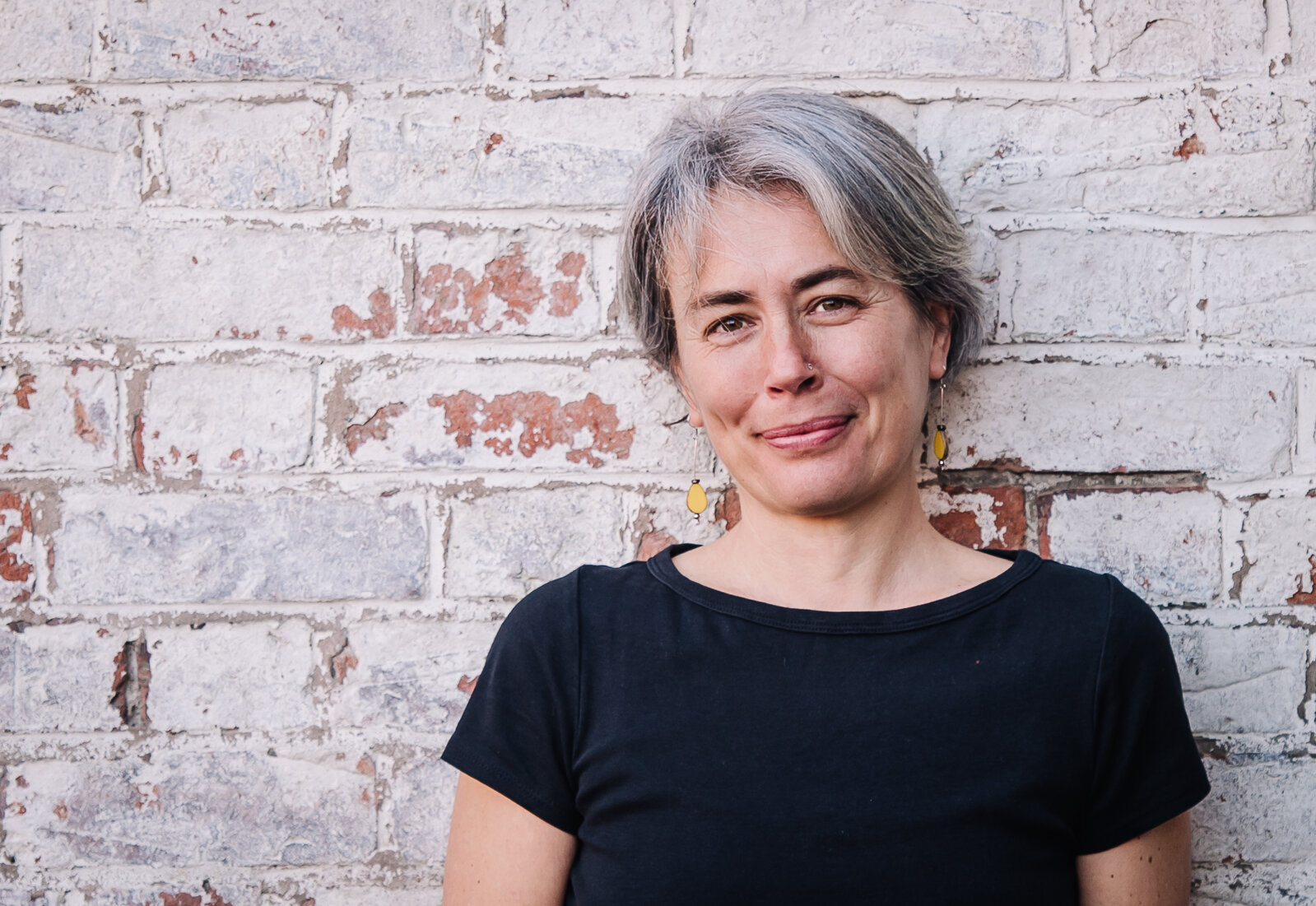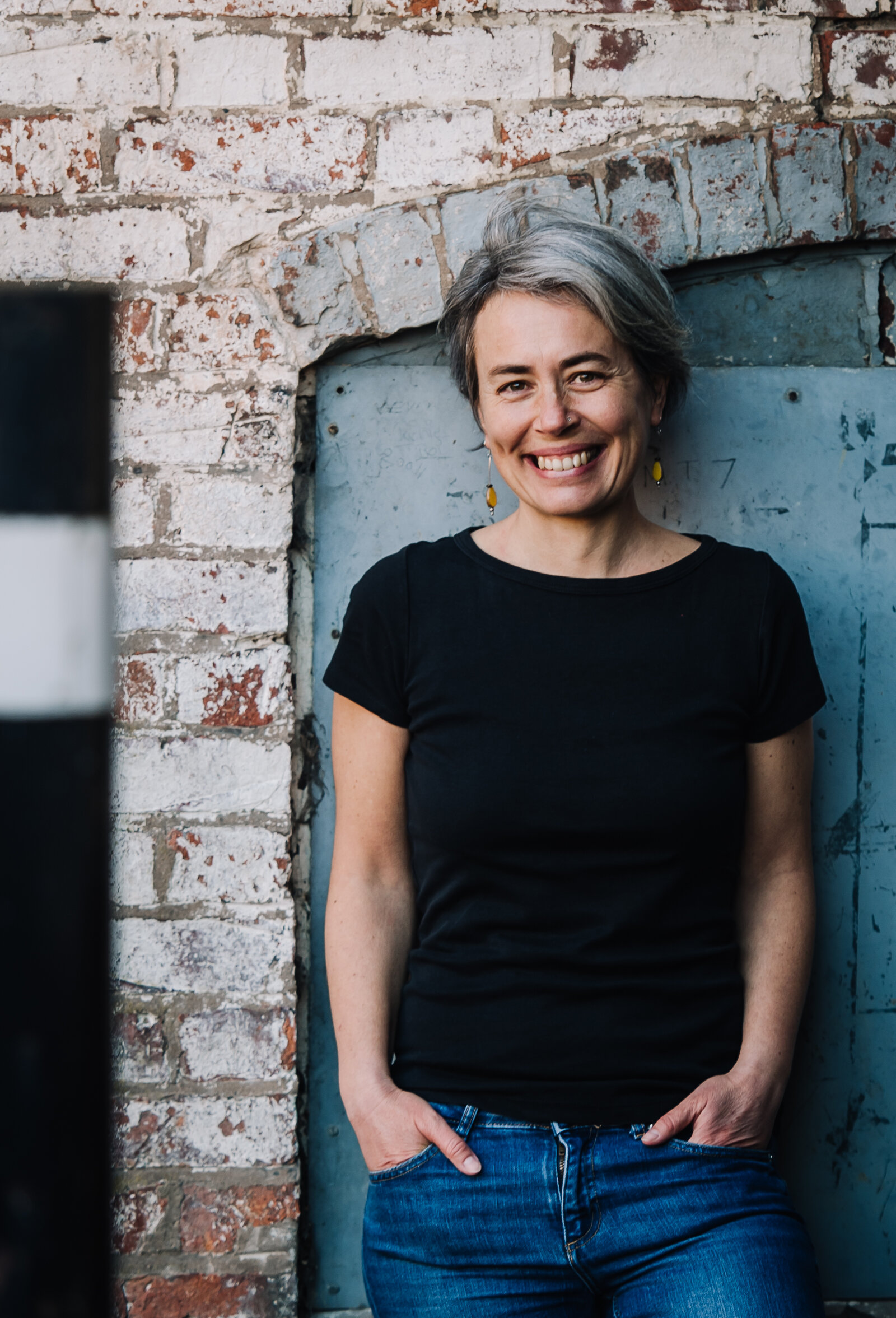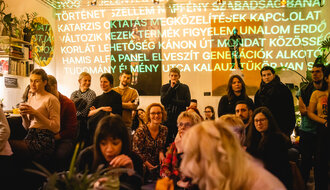Hungarian crime fiction? - We questioned Éva Cserháti about writing crime stories and the first ever Hungarian crime story festival at Off-Season
Éva Cserháti is a crime writer and translator of books, a member of the British Crime Writers' Association, and commutes between Budapest and Shrewsbury, England. She tells us that Lake Balaton is as much a part of her life as Budapest or England. How did she get involved in crime fiction, and how does she feel about the state of crime-writing in Hungary? We talked with her about this and the Off-Season Festival’s crime-themed programmes, among other things.

Photo: Birgitta Zoutman
You told us that when we talk about Hungary, Budapest and Lake Balaton play an equally important role in your life. What exactly do the lake and its surroundings mean to you?
I am connected to Lake Balaton in several ways: on the one hand, my childhood memories link me mainly to Balatonszepezd and Balatonfenyves. On the other, in later years, I stayed at the Hungarian Translators House in Balatonfüred quite a lot and took part in many workshops there when I translated several works from Hungarian into Spanish. In addition, running also links me to Lake Balaton because I was a member of a team participating in the Ultrabalaton race around the lake.
And Veszprém? Why is a regional event, like the Off-Season Festival, supported by the VEB2023 ECOC programme, such an important collective effort?
I was in Veszprém as a guest at the Off-Season Festival last year for the first time in my life, actually. It was an incredibly good and pleasant day, and the city was beautiful. I had a great time, so I was delighted to have the opportunity to join the programme again this year. Incidentally as a writer, I think organising events away from Budapest is important because, unfortunately, I see that the country is still overly centralised and excessively concentrated in a hub, Budapest. I also try to write my books in a way that the plot doesn’t only play out in the capital. There is much more to Hungary than Budapest. So, Veszprém is terrific, and it's also a pet project of mine that we move more out into the countryside and place a greater emphasis on this region.
How did writing become a central part of your life? Why did you start writing crime stories?
Writers usually start out as readers and most crime writers read crime fiction first. I majored in Hungarian literature in the '90s, at a time when crime fiction was looked down upon. It may be more prestigious now, but it's still very marginal. I didn't even read crime fiction at university. Then in my thirties, I lived on a sailboat for a while, where you would get books from the exchange bookstores at the ports because you couldn't take many books on board. You left the one you had finished reading and picked up another one. Many of these books were crime novels, so I started reading crime novels. From then on, there was no stopping me. When I wrote my first book, I was in the middle of it when the story ricocheted, and it became a crime novel. Then and there, I knew this was what I wanted to do and that I wanted to write in that genre.

Photo: Birgitta Zoutman
Last year, you and several of your colleagues created the Hungarian Crime Story Review, which you introduced to the public at the 2022 Off-Season Festival. What exactly was that about?
Yes, we created the Hungarian Crime Story Review together with crime story historian and children's crime writer Bálint Varga, crime editor Szilvia Sz. Molnár and crime writer Sándor Kálai, an associate professor at the Department of Communication and Media Studies at the University of Debrecen. The Review is a portal where we collect all Hungarian crime fiction and their authors published after 1989. The main aim was to institutionalise Hungarian crime fiction, which needed a database. Unfortunately, Hungarian crime fiction is very sporadic. People are unfamiliar with and don't know who write books in that category. That’s how the idea came up.
So, it’s safe to say that the first Hungarian Crime Festival was born this year as a sequel to the Crime Review and will debut at the Off-Season.
Actually, yes. The four of us dreamt it up and worked out the programme last year. It will be the first Hungarian crime fiction festival that brings Hungarian authors, critics, and crime filmmakers together. Thus, it will be a Hungarian crime fiction festival, unique in itself.
Which events would you highlight from the festival?
I believe that some programmes we are preparing will be very stimulating. Speaking of the region, we have a special event on the Balaton crime story, the stories that take place around the lake. There will be a panel on the Kondor phenomenon because if you've ever heard of Hungarian crime fiction, you've undoubtedly know of Vilmos Kondor. His works are the best known among Hungarian crime fiction readers. I also highly recommend the discussion on female crime writers. You know, I have received a lot of criticism for writing crime fiction as a woman, even though there are more female crime authors in the West than males. There will also be a programme on behind-the-scenes secrets about the reality of police crime fiction and how active investigations are run.

I understand you are also planning a crime-writing workshop.
Yes, there will be a free crime writing workshop at the Füge Fagyiudvar ice cream parlour on Saturday and Sunday mornings, which I will be running. It will be a fun, interactive, informal workshop for young and old, women and men, all with a single thing in mind: love crime fiction!
You said that the Balaton crime novel is an emerging literary category. The works of Judit Szlavicsek and Zoltán D. Zajácz are good examples. What do you think makes the combination of Balaton and crime fiction special?
The regional crime novel is in a class of its own. The saleability of crime fiction - especially in the United Kingdom - is also determined by the location it is set in. It is also on what, in part, the marketing of Scandinavian crime fiction is based. Readers are attracted by the fact that they are familiar with where the crime or the investigation occurs. You see many versions of the same thing in England. Just think of London crime fiction or Scottish crime fiction. You hardly find traces of this consideration in this country. The only example I could think of is the works of György Kellei. A sub-genre of crime fiction that actually focuses on Lake Balaton did not exist before him. I hope there will soon be a Vas County or Nyírség crime novel.
Why focus on Lake Balaton?
It may be because it is the second largest region after the capital that appeals to many people in Hungary. The Balaton Uplands and holidays on Lake Balaton are easier to relate to and, thus, easier for the reader to choose. It is not only contemporary literature we need to focus on when we consider the role of Balaton; it has inspired many before. One example is Mór Jókai. The convergence of the Hungarian literary tradition and the spread of the regional crime novel in general means that we have more and more Balaton crime novels. I think this is great.
